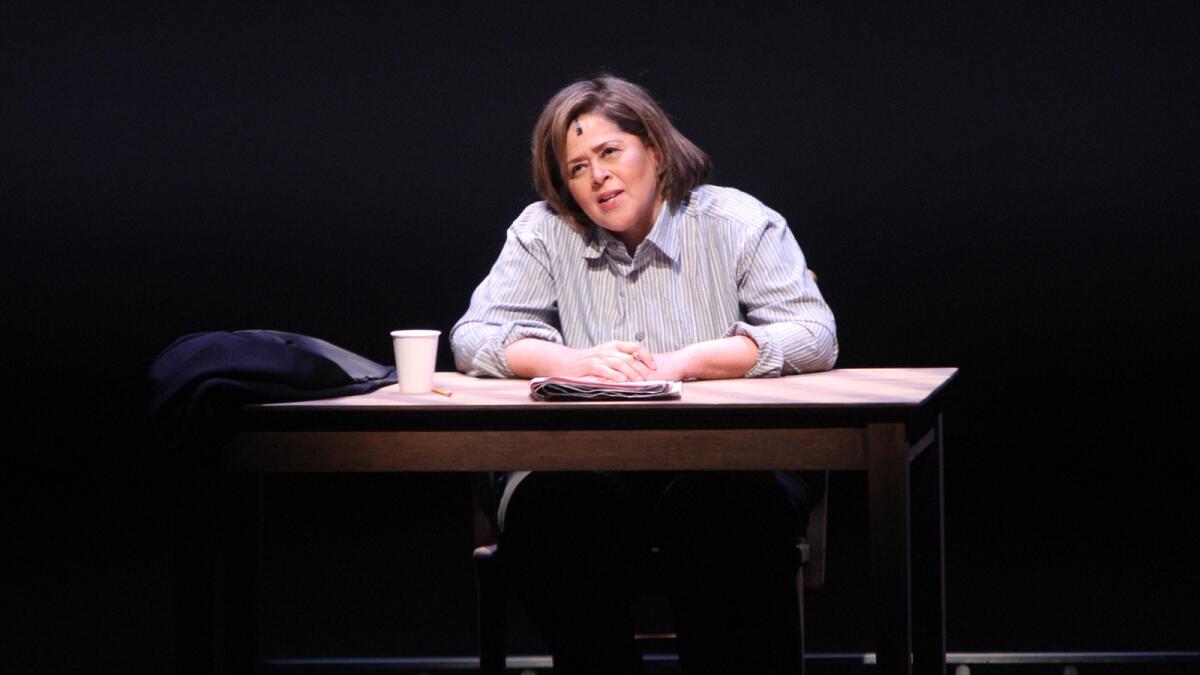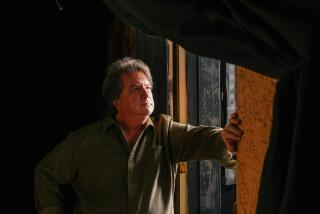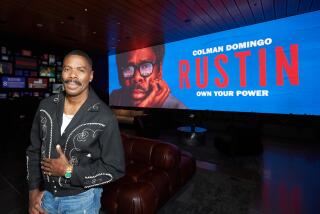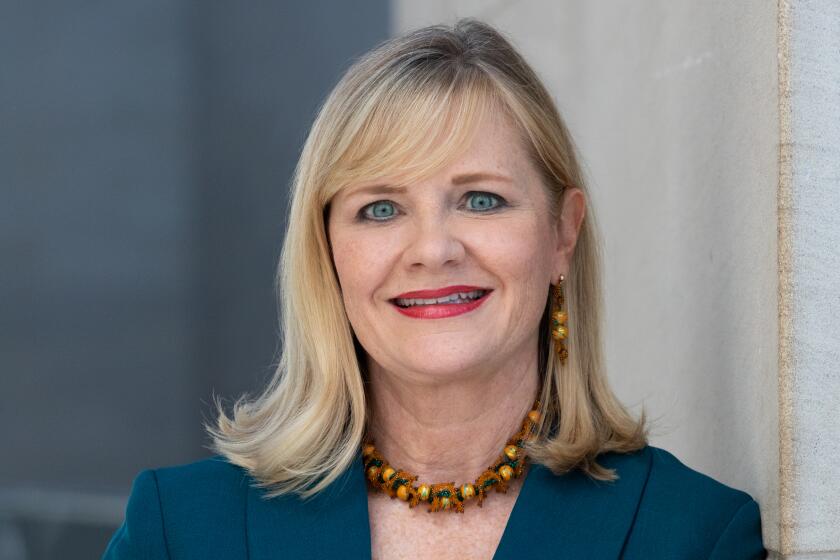‘Never Givin’ Up’ recites MLK’s ‘Letter’ to call for justice

Anna Deavere Smith, whose documentary theater offerings have investigated the Rodney King riots (“Twilight: Los Angeles, 1992”) and the crisis in U.S. healthcare (“Let Me Down Easy”), among other societal flash points, has been hard at work on a new piece on the school-to-prison pipeline in poor minority communities.
But after Ferguson, Eric Garner and the steady stream of other reports of unarmed black men (and children) killed by police officers, including the recent shocking video from North Charleston, S.C., Smith’s voice — or, rather, the democratic constellation of voices she brings to life in her incisive, humane and sociologically rich form of theater of testimony — was urgently needed.
“Never Givin’ Up,” which opened Wednesday at the Broad Stage in Santa Monica, is a hybrid construction, combining a reading of the Rev. Martin Luther King Jr.’s magnificent “Letter From Birmingham Jail” with musical accompaniment and interviews with those who are continuing King’s fight for racial and economic equality.
These interviews, borrowed from other Smith productions, complement King’s letter, which lucidly lays out the rationale for the nonviolent campaign of civil disobedience that landed him in jail in 1963. The production, directed by Stephen Wadsworth, has an emotional intensity that is partly to do with King’s passionate moral intelligence and partly to do with the pressing need in our own historical moment to reengage the substance of King’s letter and to reactivate its compassionate spirit of activism.
In an informal preface to the audience, Smith, who relied on a crutch to move around because of an injured tendon in her leg, talked about the origins of the piece. She was invited to perform King’s letter with violinist Robert McDuffie and pianist Anne Epperson at the Aspen Ideas Festival.
Her intention was to honor the letter as the great work of American literature that it is, but the resonance of its social critique and its gospel of love persuaded her to expand the offering. She asked the Broad audience to note the threads of hope that run through King’s words and those of her interview subjects, including journalist Charlayne Hunter-Gault, one of the first African Americans to attend the University of Georgia, and Congressman John Lewis, whose skull was fractured by police during the “Bloody Sunday” march on Selma, Ala.
King’s letter should be required reading for all Americans, and had the production consisted only of Smith’s recitation of this work, the evening would have been a stirring one.
King began writing this landmark document of the American Civil Rights Movement in the margins of a newspaper that had published a letter by clergymen criticizing him for taking the fight for social justice into the streets. His response, which was subsequently published nationally in the Atlantic Monthly, elucidates the justification for disobeying “unjust” laws that dehumanize a whole class of people, explaining that “human progress never rolls in on wheels of inevitability” but “comes through the tireless efforts of men willing to be co workers with God.”
Smith doesn’t attempt to impersonate King. This is a letter, not oratory. But sitting at a desk in an androgynous button-down shirt, she suggests the manner and mental state in which it was composed.
She also brings her own moral authority to bear. Smith italicizes phrases of psychological acuity (forcefully enunciating the words “a sense of somebodiness” in King’s remark about what long years of oppression have drained from some African Americans) and underscores ideas that are especially pertinent today (such as the principle that “law and order exist for the purpose of establishing justice”).
The relationship between text and music isn’t quite worked out. The two selections by Philip Glass are beautiful in that somewhat monotonous Glassian way. A Bach violin composition and the Christian hymn “How Great Thou Art” are also featured. McDuffie and Epperson sometimes alternate with Smith and sometimes accompany her. Despite the structural casualness of the piece, their playing succeeds in establishing a dignified ambience for the letter (although less here would be more) and in setting the right meditative mood for theatergoers.
The other voices Smith channels bear witness to the ongoing struggle for equality that, as King recognized, is inextricably tied to poverty. Through her portraits, Smith connects the racial and economic dots.
But rather than despairing of the setbacks to progress, she focuses on those who are finding ways of making a difference in individual lives, such as Philadelphia high school principal Linda Wayman, who drags her students onto buses for field trips so that they will know a world larger than their own. (This section, along with the equally riveting monologue she performs of Stockton City Councilman Michael Tubbs, are from Smith’s upcoming school-to-prison pipeline show.)
“Never Givin’ Up” gathers us into a civic body to contemplate these subjects from a human-centered point of view. This is what the theater, even in an artistically relaxed mode, can uniquely offer. King, citing theologian Reinhold Niebuhr, cautioned that “groups tend to be more immoral than individuals.” But audiences look to the stage for a collective expansion of empathy, and once again Smith comes through for them.
----------------------
‘Never Givin’ Up’
Where: The Broad Stage, 1310 11th St., Santa Monica
When: Check theater for schedule; ends April 26
Tickets: $29 to $55
Info: (310) 434-3200 or https://www.thebroadstage.com
Running time: 1 hour, 30 minutes
***
Also: Anna Deavere Smith will join Los Angeles Times columnists Sandy Banks and Carolina Miranda for two free community conversations on art and activism: “Finding Beauty Through Struggle,” 7 p.m. Wednesday at the California African American Museum, https://www.caamuseum.org; and “The Price Paid for the Freedom of Expression,” 2 p.m. April 25 at the Broad Stage
More to Read
The biggest entertainment stories
Get our big stories about Hollywood, film, television, music, arts, culture and more right in your inbox as soon as they publish.
You may occasionally receive promotional content from the Los Angeles Times.







